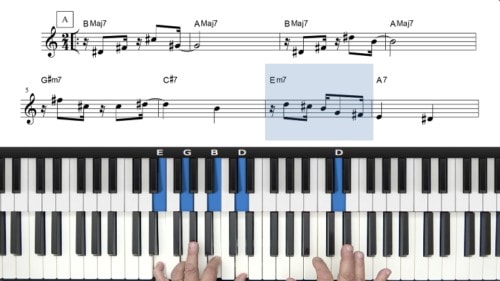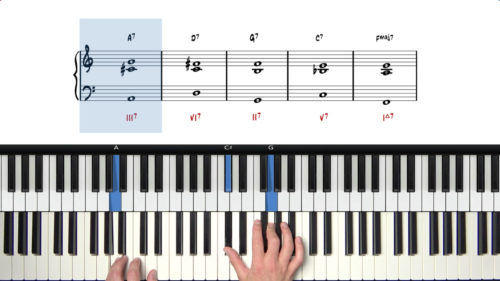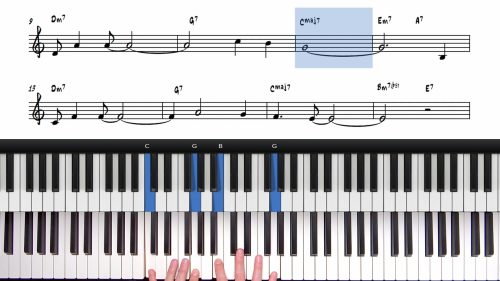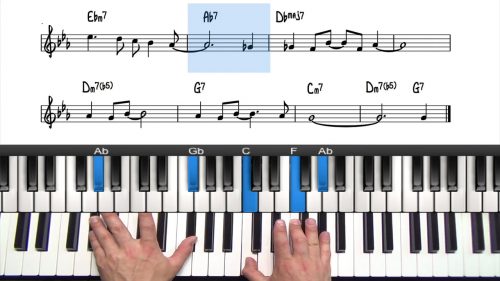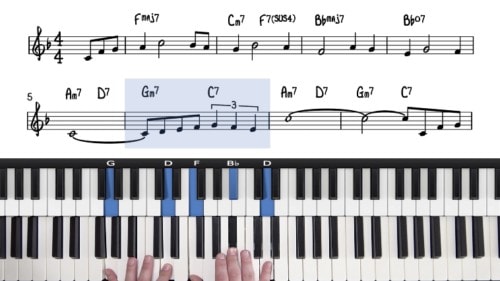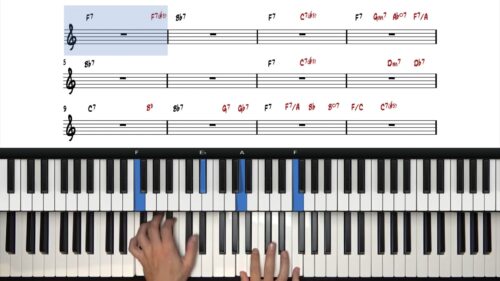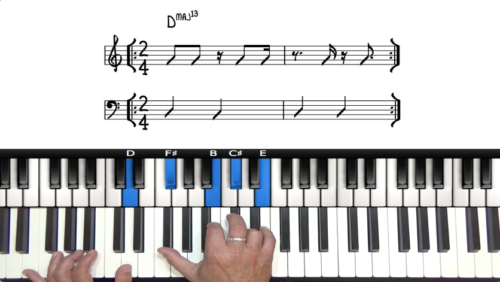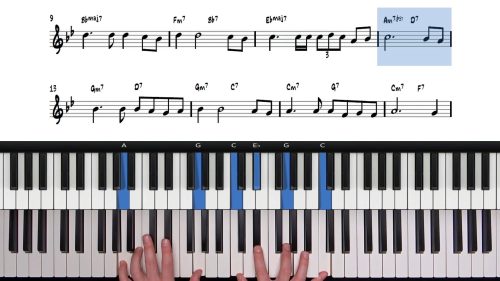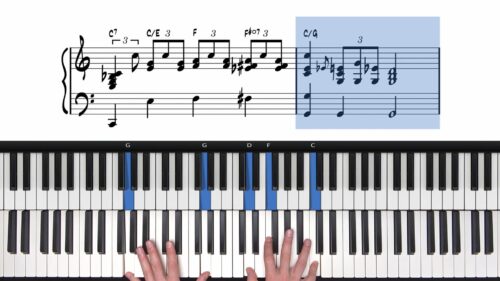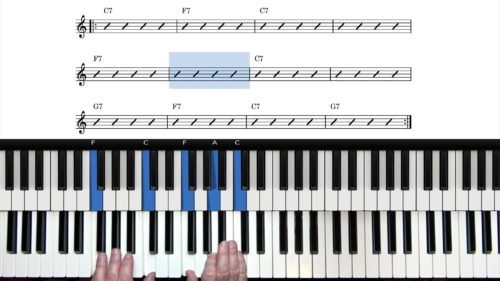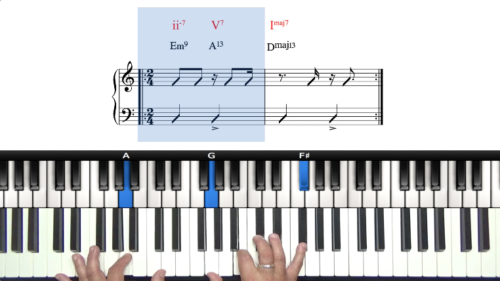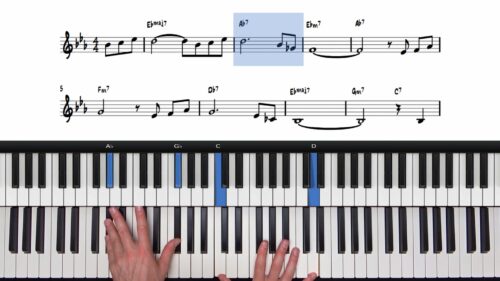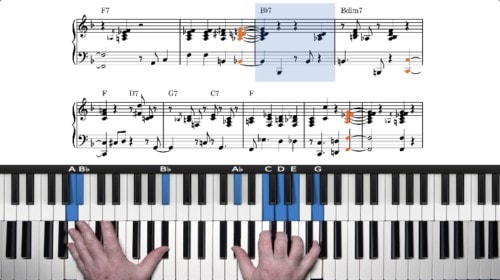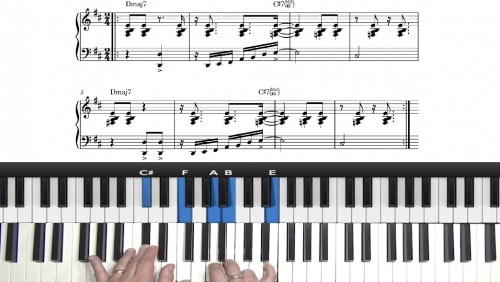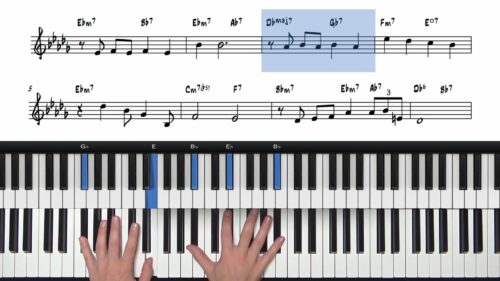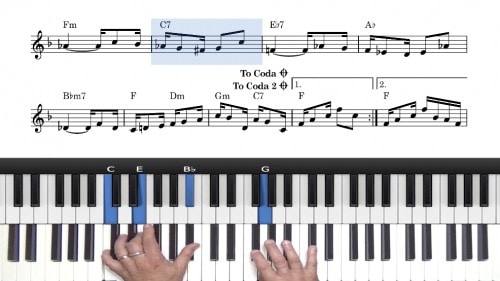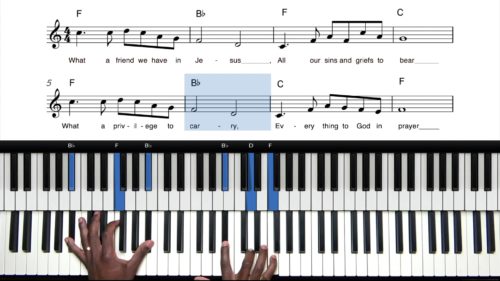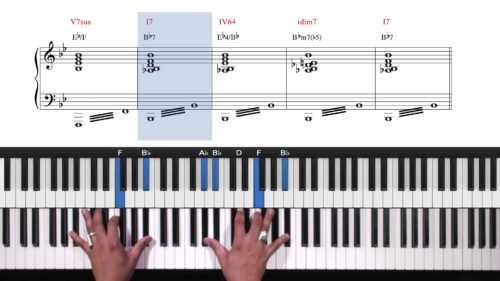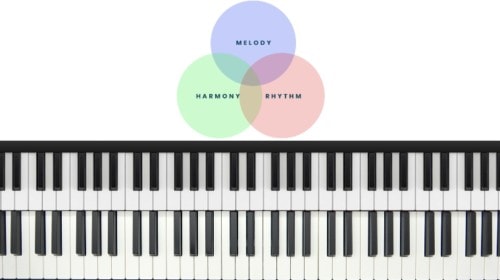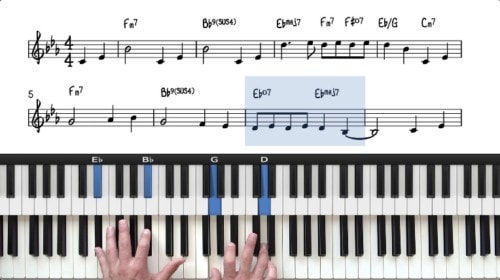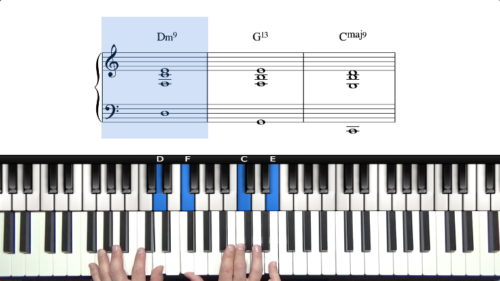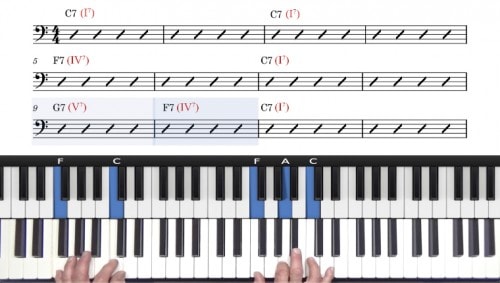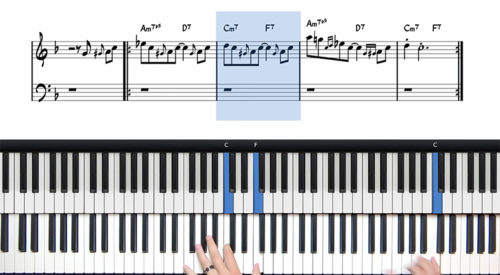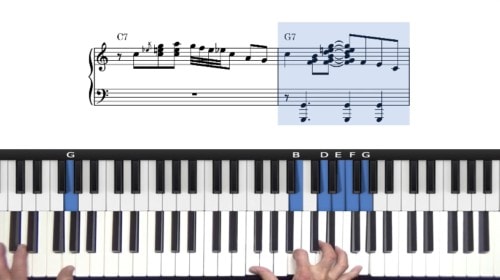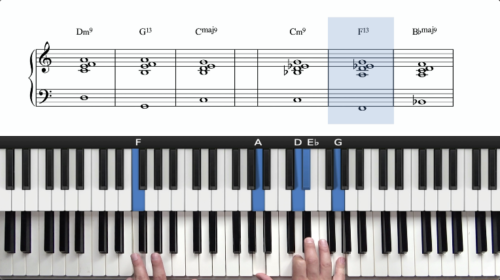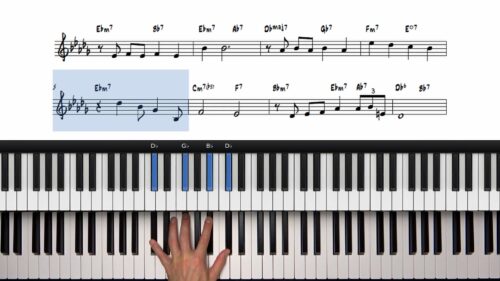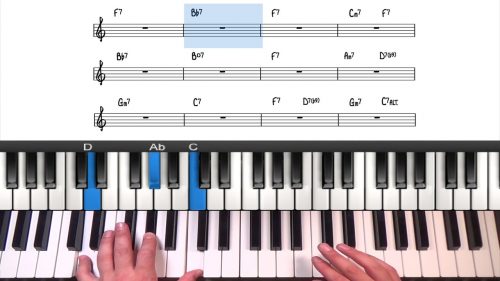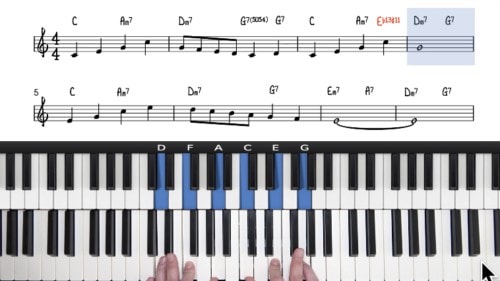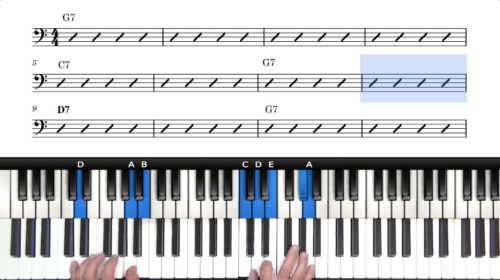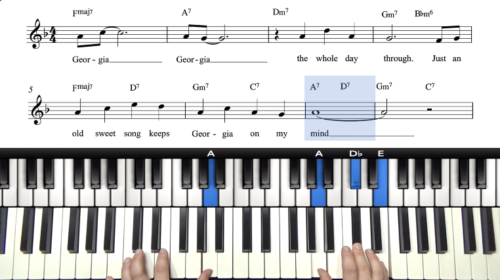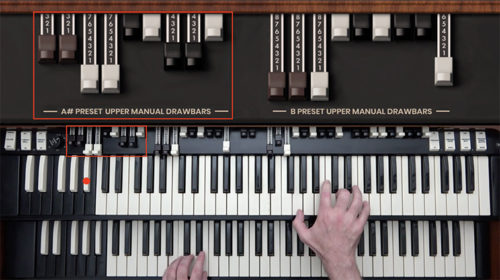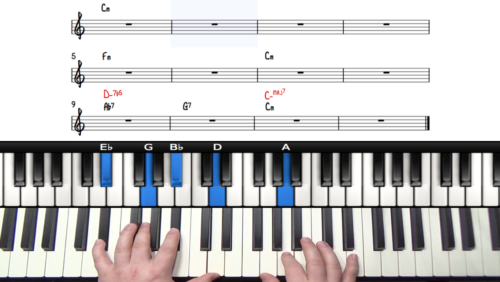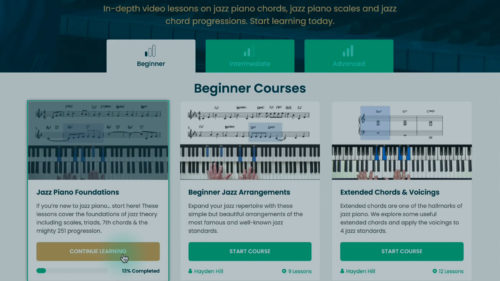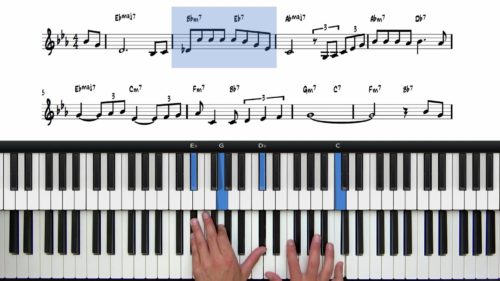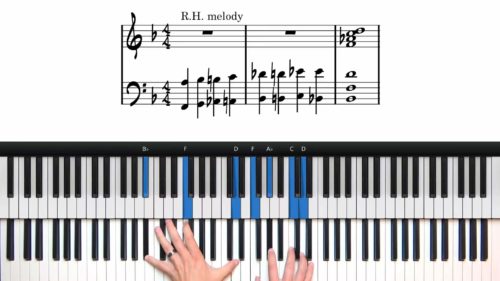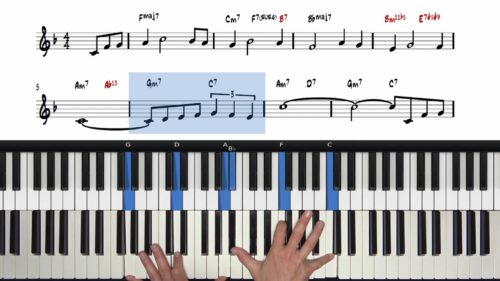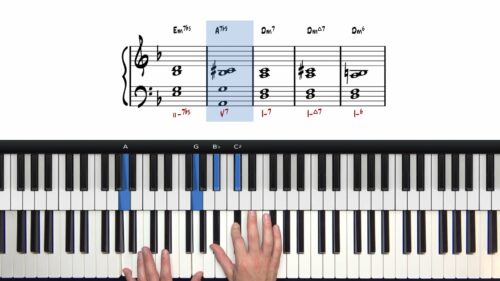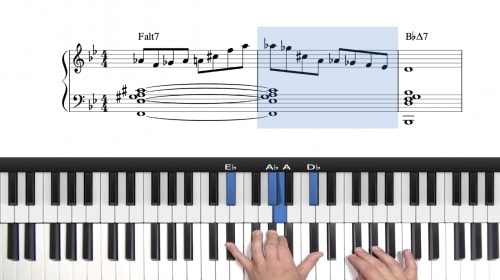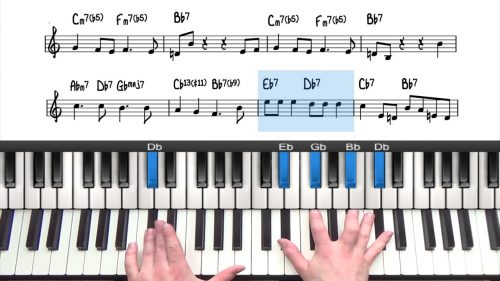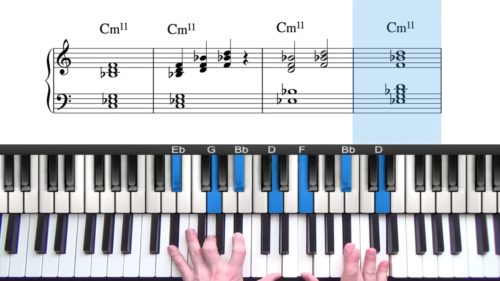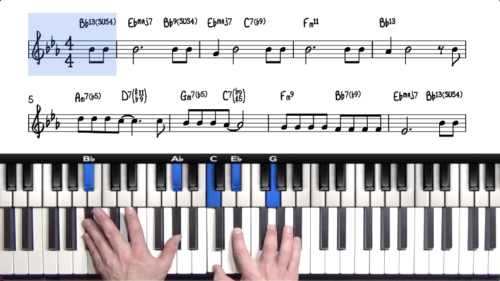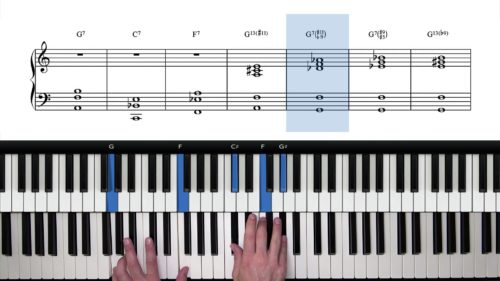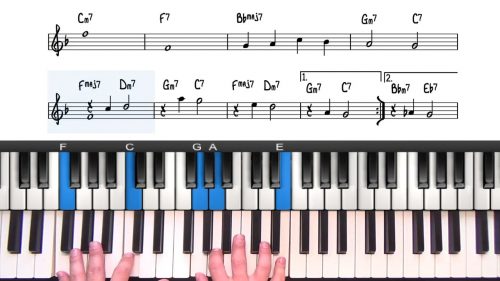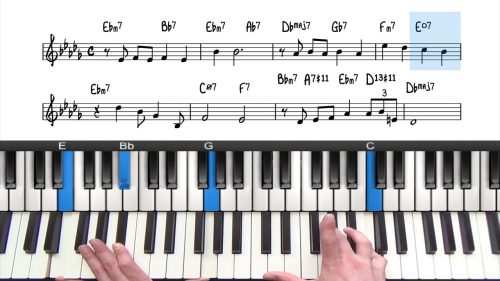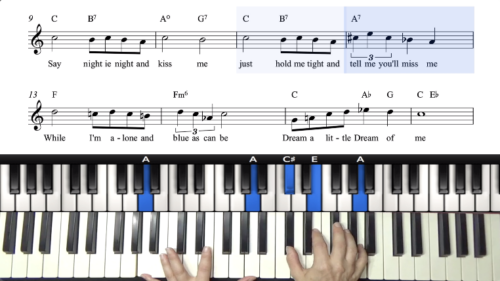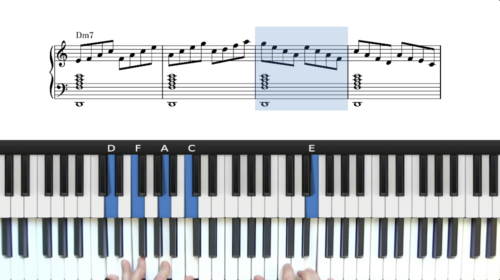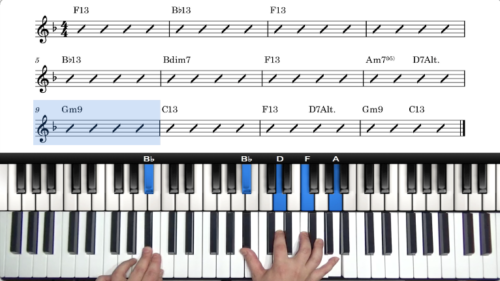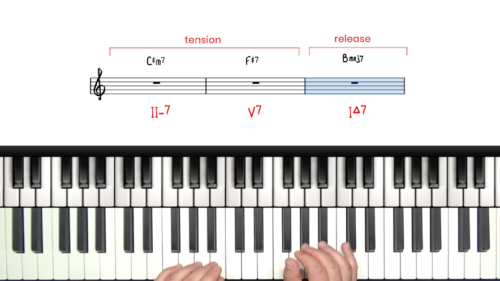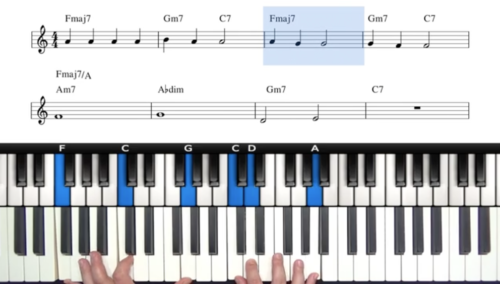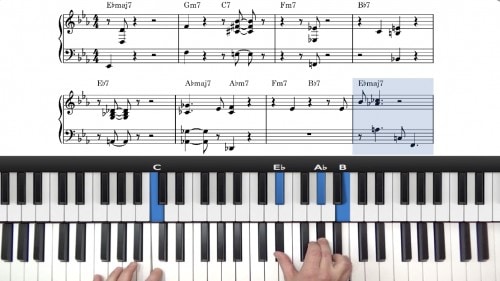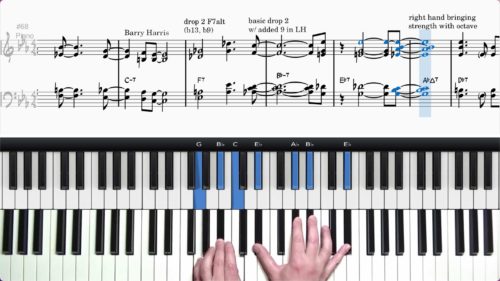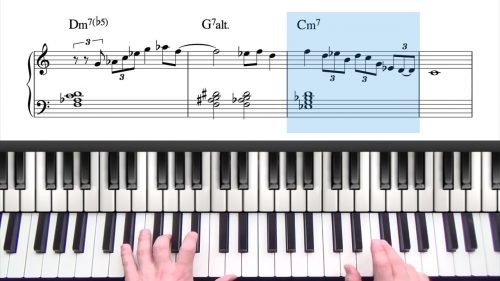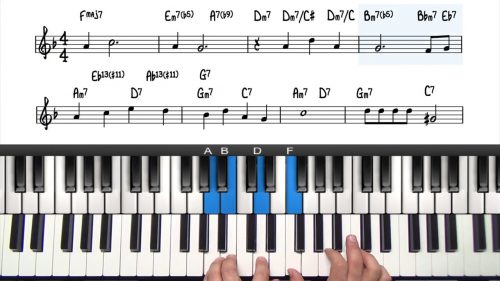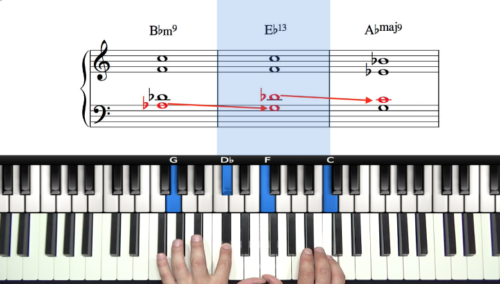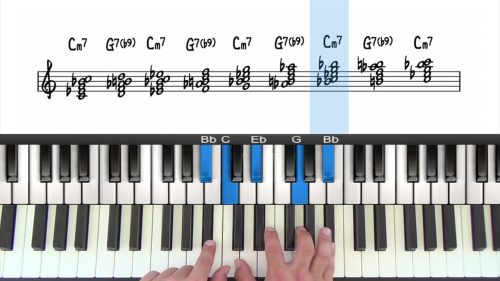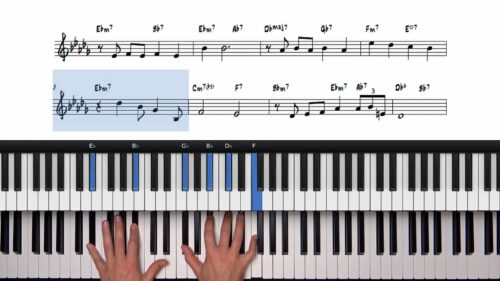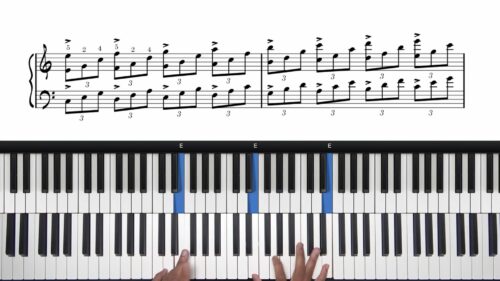Scales & Modes
The major and minor scales are an essential step in learning jazz piano. They provide a pool of notes for you to choose from when improvising and set the foundations for further modal scale study.
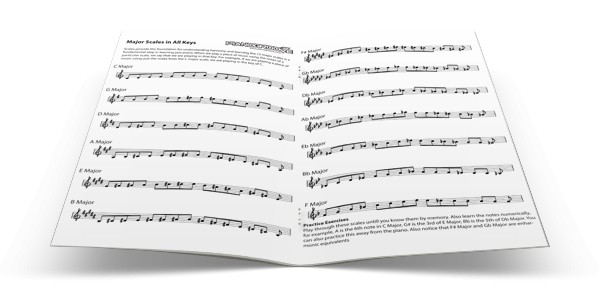
Major Scales All 12 Keys
The 12 major scales provide the foundation for further scales study. Learn these scales thoroughly so that you can play them by memory.
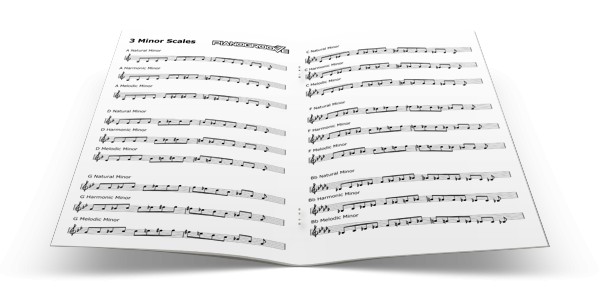
36 Minor Scales PDF
There are 3 types of minor scale: natural minor, melodic minor and harmonic minor. Each scale has a different use and application in jazz piano.
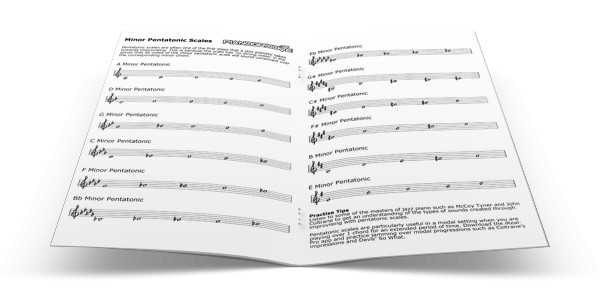
Major Pentatonic Scales PDF
The major pentatonic scale is built from the 1, 2, 3, 5 & 6 degrees of the major scale. It’s used for improvisation and also to build chord voicings.

Minor Pentatonic Scales PDF
Listen to McCoy Tyner and John Coltrane to get an understanding of the types of sounds created through improvising with pentatonic scales.
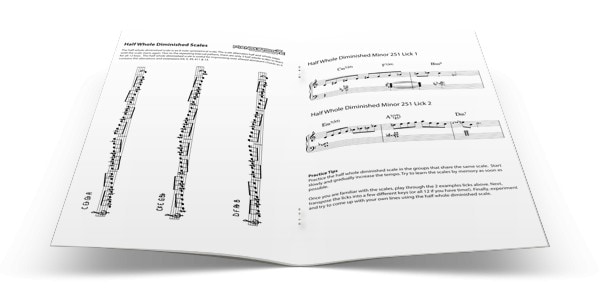
Half Whole Diminished Scales PDF
The half-whole diminished scale is an 8 note symmetrical scale. It’s played over altered dominant chords and has tensions b9, #9 & #11.
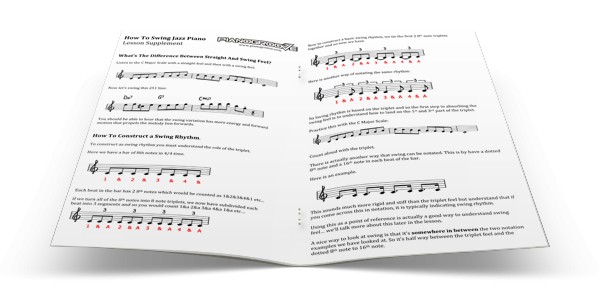
How To Swing Lesson Supplement
This is a supplement to lesson on “How To Play Swing Rhythm”. If you come from a classical background you will need to work on swing feel.
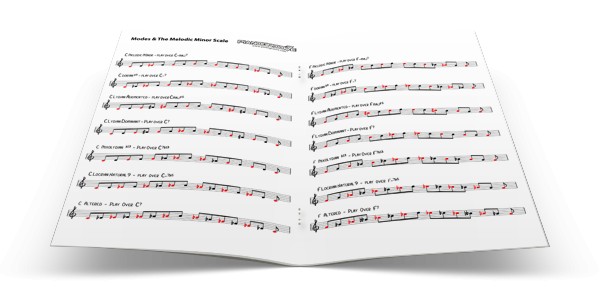
The Modes Of The Major Scale
A mode is essentially a scale with an exotic name. We can derive 7 modes from the major scale which can be used for improvisation in major keys.

The Modes Of The Melodic Minor
Also known as the ‘jazz minor scale’, these modes are exotic sounding scales that can be substituted in place of less interesting harmonies.
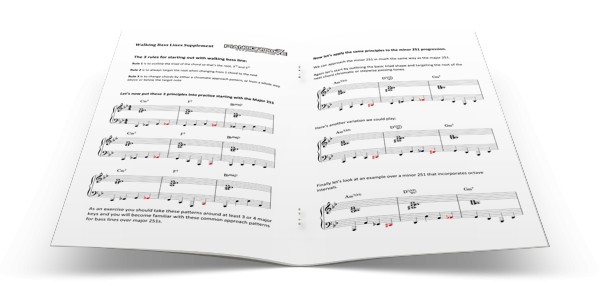
Walking Bass Lines Supplement
This is a supplement for the lesson on walking bass. We explore how to walk that bass in your left hand up basic triad shapes and scale fragments.
In-Depth Lessons on Jazz Piano Scales & Modes
To play and improvise jazz piano, you must have a good knowledge of jazz piano scales and jazz piano modes. On this page you can find full length video lessons which cover all of the essential theory. If you are new to jazz piano, check out the lessons on the major and minor scales.
What Is A Jazz Scale?
A jazz scale is a series of notes that can be used when playing jazz. There are many different types of scales that can be used for jazz improvisation. Some jazz scales are from Western European Classical music including the diatonic major and minor scales, the diminished scales and the whole tone scales. There are also many other types of scales used in jazz such as the pentatonic and blues scales, bebob scales and other modal scales.
Jazz Piano Scales For Beginners
If you are just starting out with jazz piano scale study, the first step is to learn the 12 major scales. Many of the interesting and exotic sounding modes can be derived from the major scale and so spending adequate time to memorise them will give you strong foundations for further scale study. Whilst there is only 1 type of major scale, there are 3 types of minor scale: the natural minor scale, the melodic minor scale and the harmonic minor scale.
It’s important that you understand how to construct each minor scale and also understand the uses and application in jazz piano. The natural minor scale is simply the major scale played from the 6th to the 6th degree. Eg. just start the C Major Scale on the 6th note and you will be playing the A Natural Minor Scale.
The Melodic Minor Scale is used to create more interesting melodic possibilities when playing in minor keys. The modes of the melodic minor scale can also be substituted into major harmony to access more exotic sounding extensions and alterations. The Melodic minor scale is only one note different to the major scale… simply flatten the 3rd of the major scale. Understanding this relationship will help you visualise the melodic minor scale.
The Harmonic Minor Scale is used to create more interesting harmonic possibilities in minor keys. When we construct a minor 251 progression, the V chord is always built from the Harmonic Minor Scale. This ensures that the V chord is dominant in quality which creates a strong and convincing sense of resolution to the I chord.
In addition to the lessons on the major and minor scales, you can also download PDFs containing the scales in all 12 keys. Firstly download the major scale in all 12 keys PDF. By all means, use the notation to speed up the learning process but try to commit these scales to your memory as soon as possible. Also ensure that you learn the scales numerically as this will help you greatly with further scale study. An additional PDF can be downloaded which contains the 3 types of minor scale.
Jazz Piano Scales For Improvisation
Scales and modes are used extensively in jazz for improvisation and melodic development. Try not to look at scales as a linear set of notes as this can result in aimlessly running up and down the scale which is not very musical or creative. Instead, scales offer you an ‘available set of notes’ that you can play over a chord. The relationship between chords and scales is called chord scale theory.
Chord Scale Theory
Every chord implies a scale, or in many cases multiple scales. This relationship is called Chord Scale Theory. As a jazz musician, you have the creative freedom to choose and select chord scales based on the type of sound you want to produce. Modal scales are derived from the major and minor scales and are used in jazz for soloing and improvisation. Learning the major and minor modes gives you a pool of notes to improvise over any chord symbol.
The Modes Of The Major Scale
The major modes cheat sheet provides the formulas for each of the major modes in relation to the major scale. Memorising and understanding these formulas will allow you to quickly and easily find the 7 major modes of all 12 keys.
The Modes Of The Melodic Minor Scale
Download the melodic minor modes cheat sheet which gives you the formulas for quickly constructing more exotic sounding chord scales. 4 of the melodic minor modes are commonly used and these are highlighted in green.
Blues & Pentatonic Scales
Pentatonic scales exist in both major and minor keys and provide a good starting point for learning to improvise. Pentatonic scales are particularly useful in a modal setting when playing over 1 chord for an extended period of time.
Listen to the masters of jazz piano such as McCoy Tyner and John Coltrane to get an understanding of the types of sounds created through improvising with pentatonic scales.
Symmetrical Jazz Piano Scales
The half-whole diminished scale is an 8 note symmetrical scale. The scale alternates half and whole steps until the scale starts again. The scale can be played over dominant chords and has the tensions b9, #9 & #11.


